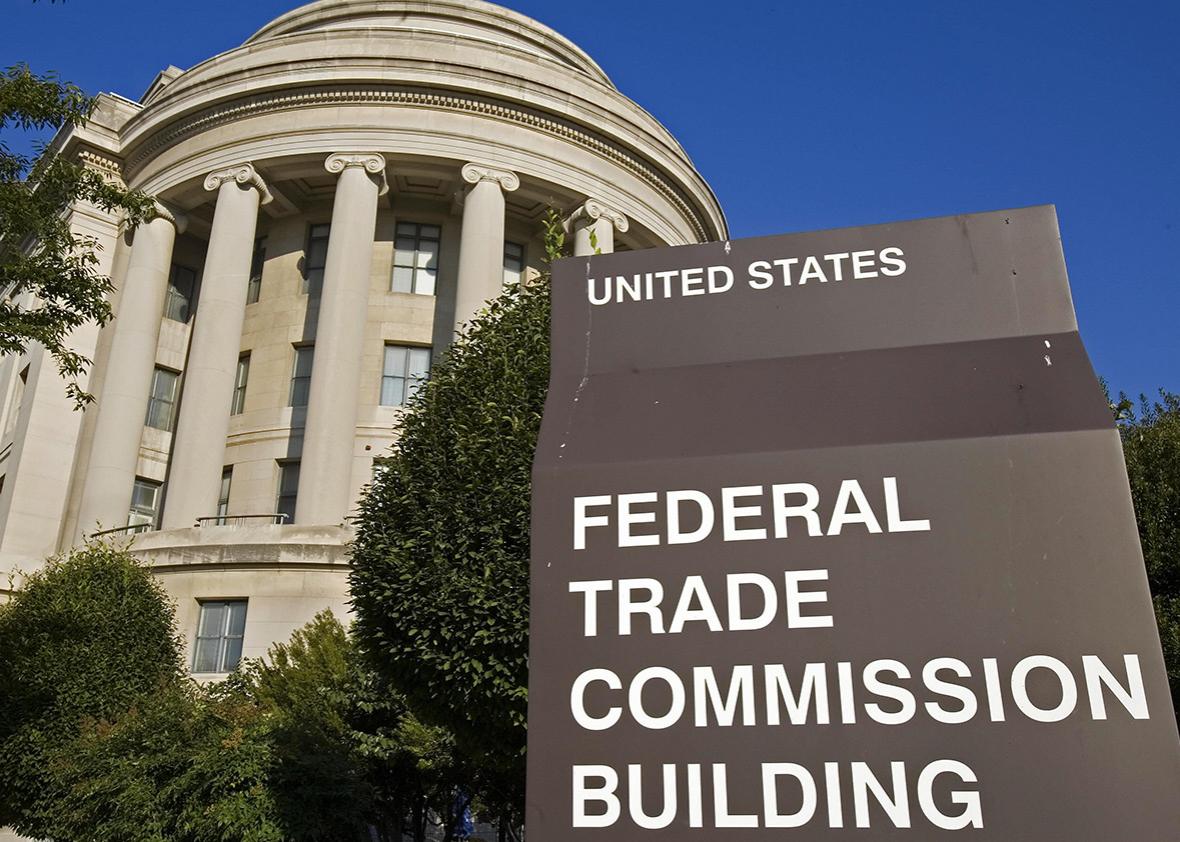Trump has landed on his pick to lead the Federal Trade Commission: Joe Simons, an antitrust lawyer who formerly represented Microsoft, as the White House announced Thursday. The FTC is the independent government agency tasked with reviewing mergers, scoping out anti-competitive behavior, and protecting consumer privacy and security. If Simons gets congressional approval, that means the agency that’s supposed to keep watch on big companies will be led by a former corporate lawyer.
It’s also another sign that Trump’s occasional vows to crack down on particular tech companies like Amazon and NBC (which is owned by Comcast)—generally following coverage he didn’t like—are not likely pan out. Remember, in May of last year when Trump chastised Amazon’s CEO Jeff Bezos, who also owns the Washington Post: “He thinks I’ll go after him for antitrust. Because he’s got a huge antitrust problem because he’s controlling so much, Amazon is controlling so much of what they are doing.” But even from a president whose chief policy motivation seems to be spite, trustbusting by a Republican administration—actually, from just about any modern administration—was probably never likely.
Simons served as the director of the FTC’s Bureau of Competition from 2001 to 2003. During that time, he did put the brakes on a few big mergers, as when the FTC required the alcohol maker Diageo to first divest from its Malibu rum business before Diageo and Pernod Ricard, another big alcohol maker, were allowed to complete the joint purchase of Seagram’s. Simons also pressed pause on the merger between major dessert brands Nestlé and Dreyer’s Grand Ice Cream. Nestlé owns Häagen-Dazs and Dreyer’s owns Edy’s, and both companies agreed to sell some assets before finalizing their merger.
But Simons also has a long track record of defending large companies, in particular tech ones. Simons represented Microsoft, Ericson, Sony, and the Sharp Corporation in competition and merger cases, helping these companies navigate antitrust litigation and avoid scrutiny. He also previously represented MasterCard in antitrust class-action lawsuits leveled against the company.
The nomination comes at a time when both Democrats and Republicans are beginning to scrutinize the power and size of large tech companies. In July, Democratic leadership issued a new antitrust agenda that urged regulators to consider how tech companies can use the troves of data they collect on users to stifle competition; the party also listed antitrust as a central tenet of its new policy platform. On the Republican side, lawmakers have been quick to condemn left-leaning Silicon Valley tech companies on free-speech grounds lately, particularly following the firing of ex-Google engineer James Damore after he circulated his sexist memo. “The mistreatment of conservatives and libertarians by tech monopolies is a civil rights issue,” tweeted California Rep. Dana Rohrabacher with the hashtag #googlememo following Damore’s firing. And on Wednesday, Sen. John McCain became the first Republican co-sponsor of a forthcoming bill from Senate Democrats Mark Warner and Amy Klobuchar that would stiffen the transparency requirements for political ads hosted by massive online platforms like Facebook and Google.
The value of the five biggest tech companies—Apple, Alphabet (Google’s parent company), Amazon, Facebook, and Microsoft—has doubled in the last three years, ballooning to more than $3 trillion, according to Reuters. Apple, Alphabet, Microsoft, and Facebook occupy the top four spots for the most valuable companies in the world; Amazon is in sixth, after Coca-Cola.
If Simons’ FTC does scrutinize Silicon Valley more closely, it would certainly tap into a growing fervor for tighter regulation of the industry. But that would also mean bucking a long-standing tradition at the FTC of not pursuing large antitrust cases; the most recent major one in the U.S. was against Microsoft almost 20 years ago.
The FTC isn’t the only shop in the federal government that assesses corporate power. There’s also the antitrust division of the Department of Justice which, unlike the FTC, can file criminal charges against antitrust violators. In September, the Senate confirmed Makan Delrahim to lead the antitrust division at the Department of Justice, which is slated to decide whether or not it will approve AT&T’s bid to buy Time Warner Cable for $85 billion. Like Simons, Delrahim also has a background in representing the interests of tech and media giants: In 2016, he lobbied on behalf of both Qualcomm and Comcast.
The FTC won’t be without critics of corporate consolidation. Trump also announced on Thursday that he is nominating Rohit Chopra to fill the FTC’s open Democrat seat. Chopra, a senior fellow at the Consumer Federation of America, worked for Elizabeth Warren when she was at the Consumer Finance Protection Bureau. (She’s now, of course, one of the most outspoken and influential critics of outsize corporate power on Capitol Hill.) Finally, Noah Phillips, currently serving as chief counsel for Texas Sen. John Cornyn, was reportedly picked to fill the FTC’s last open Republican seat for a final tally of three Republican commissioners and two Democrats.
